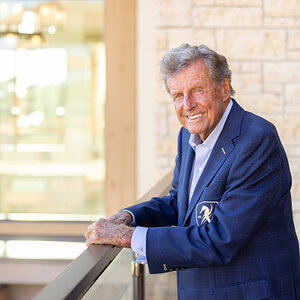Hoag Hospital receives $50 million for center for brain health

The Orange County, California-based Hoag Hospital has announced a $50 million gift from Newport Beach philanthropist Richard H. Pickup to create a center dedicated to brain health and healthy aging.
Awarded to the Hoag Hospital Foundation, the multiyear gift will establish the Richard H. Pickup Center for Brain Health, which will provide a whole-family approach to addressing the prevention, early detection, and care for cognitive impairment and mental health disorders, including Alzheimer’s disease and other forms of dementia. According to Hoag Hospital, demand for age-related health care is outpacing the supply nationwide, and in Orange County, Alzheimer’s is expected to more than double by 2040. The center will address the ways in which these disorders have potential to impact overall physical health, erode quality of life, and greatly increase healthcare costs for patients and their families. Plans are being developed for a dedicated space on the lower campus of Hoag Newport Beach to house the center, and the gift includes support for attracting national experts and creating endowed chairs.
A longtime supporter of Hoag, Pickup made a $15 million gift in 2017 to name the Pickup Family Neurosciences Institute.
“Hoag is making great strides in the understanding of brain health and Alzheimer’s disease. They are on the cutting edge, but there is still so much that is unknown about the brain,” said Pickup. “I trust that the passionate experts at Hoag will advance this area of medicine and give people, beyond Orange County, a place they can turn to and trust.”
“Most dementia centers are focused almost entirely on clinical research and clinical trials. While research is of crucial importance—and something that we will continue to promote at Hoag—it is only part of the picture. Until we find a cure for dementia, we need to emphasize supporting patients and their families to adapt to the day-to-day impact of dementia,” said Aaron Ritter, Larkin Family Endowed Chair in Integrative Brain Health and director of the Memory & Cognitive Disorders Program at the Pickup Family Neurosciences Institute. “Focusing on recognizing the treatable conditions that can cause cognitive impairment, we can slow if not reverse a person’s decline. This improves the quality of life for patients and their caregivers.”
(Photo credit: Hoag Hospital Foundation)




